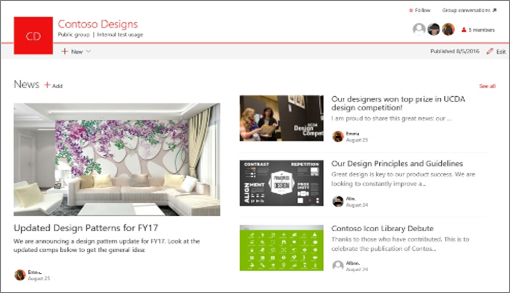All About International News Online
The 4-Minute Rule for International News Online
Table of ContentsInternational News Online - The FactsInternational News Online for DummiesAbout International News OnlineThe Ultimate Guide To International News Online7 Easy Facts About International News Online Explained
The system's name adjustment happened in July 2023.) Some social media sites websites in spite of having fairly small total audiences attract attention for having high shares of users who routinely most likely to the site for information. Roughly half of individuals on X (53%) obtain information there. On the other hand, only 15% of Snapchat individuals regularly obtain news on the app.
journalists, however except the public, June 27, 2022 News on Twitter: Eaten by The Majority Of Individuals and Trusted by Numerous, Nov. 15, 2021 Greater than eight-in-ten Americans get information from digital devices, Jan. 12, 2021 Measuring Information Intake in a Digital Era, Dec. 8, 2020 Many Americans Get News on YouTube, Where News Organizations and Independent Producers Prosper Side-by-side, Sept.
Things about International News Online
When asked whether social media is an excellent or poor thing for freedom in their nation, a mean of 57% across 19 countries state that it is an advantage (International News Online). In nearly every nation, near to fifty percent or more say this, with the belief most typical in Singapore, where approximately three-quarters believe social media is an excellent thing for freedom in their country.
And in the united state, only around a third think social media sites declares for freedom the smallest share amongst all 19 nations surveyed. In eight nations, those that think that the political system in their country enables them to have an influence on politics are likewise extra most likely to say that social media is an advantage for democracy.
Those who check out the spread of false info online as a significant hazard to their country are less likely to say that social networks is a great point for freedom, compared to those that see the spread of misinformation online as either a minor risk or not a danger in all.
More About International News Online
This pattern is obvious in eight other countries. Sights additionally vary by age. Older grownups in 12 countries are less likely to claim that social media is a good idea for democracy in their nation when compared to their younger counterparts. In Japan, France, Israel, Hungary, the UK and Australia, the void between the youngest and earliest age goes to least 20 percent points and ranges as high as 41 factors in Poland, where almost nine-in-ten (87%) more youthful grownups state that social media has actually been a good idea for freedom in the country and just 46% of grownups over 50 say the very same.
Across the 6 issues tested, couple of often tend to say they see no changes because of raised connectivity rather seeing things altering both favorably and adversely and typically both at the same time (International News Online). A mean of 84% claim technical connection has made people easier to adjust with false information and rumors the most amongst the 6 concerns examined
In most countries, those that think social media has actually made it easier to adjust individuals with false information and reports are also much more most likely to assume that social media has actually made people much more notified. When it involves national politics, the web and social media are typically viewed as turbulent, with a typical of 65% claiming that people are now more split in their political viewpoints.
The Ultimate Guide To International News Online
This sense of risk is connected to the widespread belief that individuals today are now simpler to manipulate with incorrect details and rumors many thanks to the net and social media sites. Around half or even more in every country surveyed shares this sight. And in locations like the Netherlands, Australia and the UK, around nine-in-ten see individuals as more manipulable.
In South Korea, 90% of those under age 30 claim social media makes individuals much easier to manipulate, Click This Link compared with 65% of those 50 and older. (Surprisingly, U.S.-focused study has located older adults are more probable to share false information than more youthful ones.) People with even more education are likewise commonly extra most likely than those with less education and learning to claim that social networks has resulted in people being less complicated to adjust.

All About International News Online
In Sweden, Japan, Greece and the Netherlands, around eight-in-ten or even more share this view, while in Malaysia, a smaller sized majority (56%) states the exact same. More youthful adults often tend to see social media making people extra educated than older adults do. Older adults, for their component, do not necessarily see the net and social check out this site networks making individuals less informed about what's taking place in their country; rather, they're somewhat a lot more likely to describe these systems as having little impact on individuals's details degrees.
